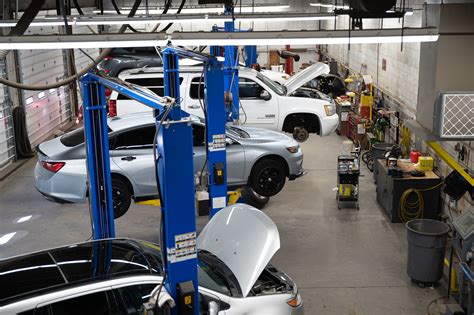5 Automotive Skills

Introduction to Automotive Skills

In today’s world, having basic automotive skills can be extremely beneficial, whether you’re a car enthusiast or just a regular driver. Knowing how to perform simple repairs and maintenance tasks can save you money, time, and stress in the long run. In this article, we’ll explore five essential automotive skills that every driver should possess. These skills will not only help you become more self-sufficient but also give you a better understanding of how your vehicle works.
1. Oil Change and Filter Replacement

One of the most critical maintenance tasks for your vehicle is changing the oil and replacing the filter. Regular oil changes help to lubricate the engine, prevent overheating, and reduce wear on moving parts. To change your oil, you’ll need to gather a few tools and materials, including: * A socket wrench or ratchet and socket * Oil drain pan * New oil filter * Oil filler cap * New oil You can find the specific instructions for your vehicle in the owner’s manual or online. Remember to dispose of the used oil and filter responsibly.
2. Tire Pressure and Rotation

Proper tire pressure and rotation are crucial for your safety on the road. Underinflated tires can lead to reduced fuel efficiency, uneven tire wear, and increased risk of a blowout. To check your tire pressure, you’ll need a tire pressure gauge. Compare the pressure to the recommended level, which can be found on the tire information placard on the driver’s side doorjamb or in the owner’s manual. Additionally, rotating your tires every 5,000 to 8,000 miles can help to: * Improve traction and handling * Reduce uneven wear * Increase the lifespan of your tires The rotation pattern will depend on the type of vehicle and tires you have.
3. Battery Maintenance

Your vehicle’s battery is essential for starting the engine and powering the electrical systems. To keep your battery in good condition, make sure to: * Check the water level (if applicable) * Clean the terminals to prevent corrosion * Avoid deep discharging by keeping the battery charged * Test the battery voltage regularly You can use a multimeter to check the voltage. A fully charged battery should read around 12.6 volts.
4. Brake Pad Replacement

Worn-out brake pads can be a serious safety concern. If you notice any of the following symptoms, it may be time to replace your brake pads: * Squealing or grinding noises when braking * Vibrations or pulsations when applying the brakes * Reduced stopping power To replace your brake pads, you’ll need to: * Jack up the vehicle and remove the wheels * Remove the caliper and old brake pads * Install the new brake pads and caliper * Bleed the brake system to remove any air
5. Air Filter Replacement

A dirty air filter can decrease your vehicle’s performance, fuel efficiency, and overall health. To replace your air filter, you’ll need to: * Locate the air filter housing * Remove the filter and inspect it for dirt and debris * Clean or replace the filter as needed * Reinstall the filter and housing Make sure to check your owner’s manual for the recommended replacement interval, which is usually between 15,000 to 30,000 miles.
💡 Note: Always refer to your owner's manual for specific instructions and guidelines for your particular vehicle.
To help you better understand the importance of these automotive skills, here is a table summarizing the benefits:
| Skill | Benefits |
|---|---|
| Oil Change and Filter Replacement | Improved engine performance, increased fuel efficiency, and reduced wear on moving parts |
| Tire Pressure and Rotation | Improved traction and handling, reduced uneven wear, and increased tire lifespan |
| Battery Maintenance | Improved starting performance, reduced risk of battery failure, and increased overall electrical system health |
| Brake Pad Replacement | Improved stopping power, reduced risk of brake failure, and increased overall safety |
| Air Filter Replacement | Improved engine performance, increased fuel efficiency, and reduced emissions |

In summary, having these five automotive skills can help you become a more self-sufficient and knowledgeable driver. By regularly maintaining your vehicle and performing simple repairs, you can save money, time, and stress in the long run. Remember to always refer to your owner’s manual for specific instructions and guidelines for your particular vehicle.
What is the importance of regular oil changes?

+
Regular oil changes help to lubricate the engine, prevent overheating, and reduce wear on moving parts. This can improve engine performance, increase fuel efficiency, and prolong the lifespan of your vehicle.
How often should I rotate my tires?

+
The frequency of tire rotation depends on the type of vehicle and tires you have. Typically, it’s recommended to rotate your tires every 5,000 to 8,000 miles. Consult your owner’s manual for specific guidelines.
What are the symptoms of worn-out brake pads?

+
Symptoms of worn-out brake pads include squealing or grinding noises when braking, vibrations or pulsations when applying the brakes, and reduced stopping power. If you notice any of these symptoms, it’s essential to replace your brake pads as soon as possible.